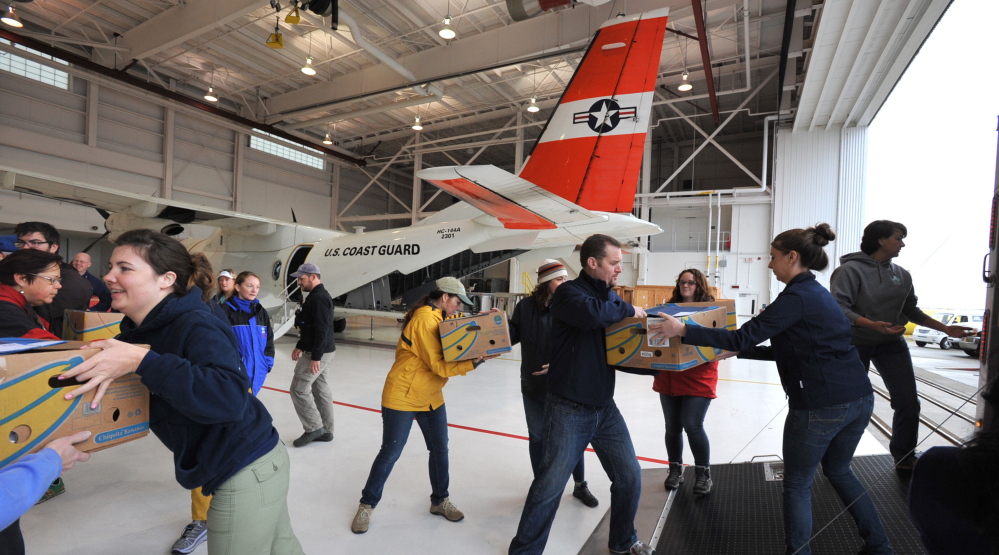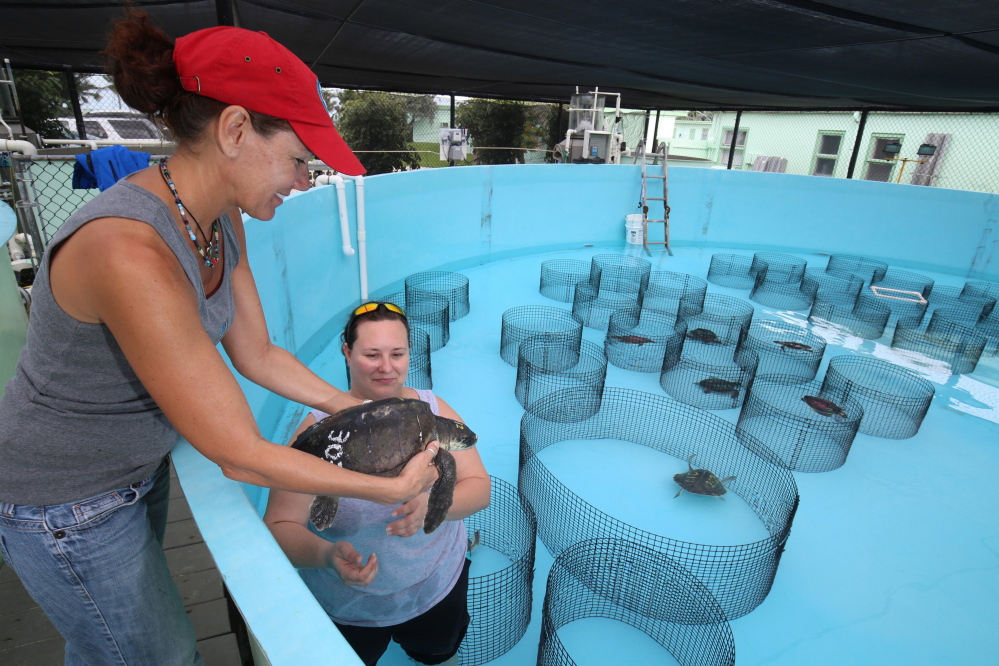SAVANNAH, Ga. — Georgia’s hospital for sick and injured sea turtles has been busier than ever, pitching in with other East Coast rehabilitation centers to treat hundreds of endangered turtles washing ashore with acute hypothermia in Massachusetts.
The Georgia Sea Turtle Center on Jekyll Island was treating more than 60 sick turtles as of Monday, up from eight less than two weeks ago. Dr. Terry Norton, the veterinarian in charge of the Georgia center, said the increase comes from a record number of sea turtles found sickened by extreme cold off Cape Cod. He said the Georgia turtle hospital has never had so many patients at once since it opened in 2007.
“It’s definitely a lot of animals to manage,” said Norton, whose professional staff of 10 has been working long hours and trying to stretch limited resources since the influx began. “We’re not able to do everything we want on these animals because there’s so many. Some are critical and others are doing pretty well. It’s a mixed bag.”
The New England Aquarium in Boston has been sending hundreds of endangered turtles rescued from nearby beaches to treatment centers stretching from the Pittsburgh Zoo in Pennsylvania to SeaWorld Orlando in Florida.
Since mid-November, more than 600 sea turtles have been rescued after washing up on the beach at the north end of Cape Cod, said aquarium spokesman Tony LaCasse.
The numbers of turtles sickened by severe hypothermia this season far exceeds the previous record of 242 rescued in 2012. LaCasse said some scientists suspect the numbers reflect that sea turtles born in the last few years are surviving at a much higher rate, meaning there are simply more of them out there to get sick, though nothing has been confirmed.
“Nobody’s sure what happened here,” he said. “It’s a real mystery.”
Almost all of the turtles washing up sick in Massachusetts are endangered Kemp’s Ridley sea turtles, considered the smallest marine turtles in the world. Adults can weigh up to 100 pounds and measure 2 feet in length. The sick ones from Cape Cod are largely youngsters weighing just a few pounds.
The Georgia Sea Turtle Center has taken in 62 of the New England turtles in the last two weeks, Norton said, and five of them were quickly able be return to the wild.
Hypothermic turtles often stop eating and their immune systems become weak, leaving them vulnerable to pneumonia and bone infections.
Staffers at the Georgia center have been working to return sick turtles’ body temperatures to normal by slowly raising the water temperature in their tanks. Many of the turtles are also being fed a glucose solution intravenously until they’re well enough to resume eating on their own. Those with infections are being treated with antibiotics.
Norton said some of his amphibious patients should be able to return to the ocean soon.
“I’d like to give them at least a week if they start eating and swimming well,” he said. “Others could be here quite a while. It could be until the spring or the summer for some of them.”
Send questions/comments to the editors.




Success. Please wait for the page to reload. If the page does not reload within 5 seconds, please refresh the page.
Enter your email and password to access comments.
Hi, to comment on stories you must . This profile is in addition to your subscription and website login.
Already have a commenting profile? .
Invalid username/password.
Please check your email to confirm and complete your registration.
Only subscribers are eligible to post comments. Please subscribe or login first for digital access. Here’s why.
Use the form below to reset your password. When you've submitted your account email, we will send an email with a reset code.